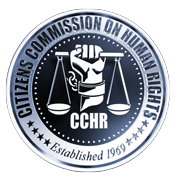Massive Fraud: Psychiatry’s Corrupt Industry
Introduction
For decades, psychiatrists and psychologists have claimed a monopoly over the field of mental health. Governments and private health insurance companies have provided them with billions of dollars every year to treat “mental illness,” only to face industry demands for even more funds to improve the supposed, ever-worsening state of mental health. No other industry can afford to fail consistently and expect to get more funding.
A significant portion of these appropriations and insurance reimbursements has been lost due to financial fraud within the mental health industry, an international problem estimated to cost more than a hundred billion dollars every year.
- The United States loses approximately $100 billion (€81.5 billion) to health care fraud each year. Up to $20 billion (€15.7 billion) of this is due to fraudulent practices in the mental health industry.
- One of the largest health care fraud suits in US history was in mental health, yet it is the smallest sector within health care.
- A study of US Medicaid and Medicare insurance fraud, especially in New York, over a twenty-year period, showed psychiatry to have the worst track record of all medical disciplines.
- Germany reports roughly $1 billion (€807 million) is defrauded each year.
- In Australia, health care fraud and patient over-servicing has cost taxpayers up to $330 million (€226 million) a year.
- In Ontario, Canada, psychotherapist Michael Bogart was sentenced to 18 months in jail for defrauding the government of almost $1 million (€815,993), the largest medical fraud case in the history of the province.
Mark Schiller, president of the American Association of Physicians and Surgeons, admitted: “I have frequently seen psychiatrists diagnose patients with a range of psychiatric diagnoses that aren’t justified, to obtain [insurance] reimbursements.”
However, psychiatrist and psychologist membership bodies do not police this criminality. Rather, as former president of the American Psychiatric Association (APA), Paul Fink, arrogantly admitted: “It is the task of the APA to protect the earning power of psychiatrists.”
The mental health monopoly has practically zero accountability and zero liability for its failures. This has allowed psychiatrists and psychologists to commit far more than just financial fraud. The roster of crimes committed by these “professionals” ranges from fraud, drug offenses, rape and sexual abuse to child molestation, assault, manslaughter and murder.
The primary purpose of mental health treatment must be the therapeutic care and treatment of individuals who are suffering emotional disturbance. It must never be the financial or personal gain of the practitioner. Those suffering are inevitably vulnerable and impressionable. Proper treatment therefore demands the highest level of trustworthiness and integrity in the practitioner.
As experience has shown that there are many criminal mental health practitioners, the Citizens Commission on Human Rights has developed a database at www.psychcrime.org that lists many of the people in the mental health industry who have been convicted and jailed.
Created in response to the high number of convicted mental health practitioners who continue to seek employment in the mental health industry, one of its primary purposes is to inform people about the background of those individuals.
There is no place for criminal intent or deed in the field of mental health. CCHR works with others to ensure this standard is upheld.
This information is presented as a public service to law enforcement agencies, health care fraud investigators, international police agencies, medical and psychological licensing boards and the general public with the purpose of bringing to an end criminal psychiatric abuse in the mental health system.
Sincerely,

Jan Eastgate
President
Citizens Commission
on Human Rights International







